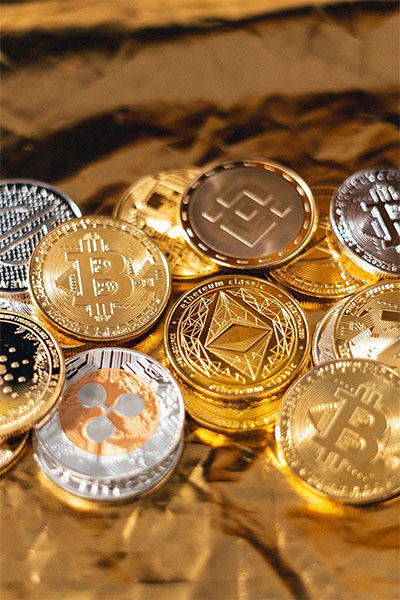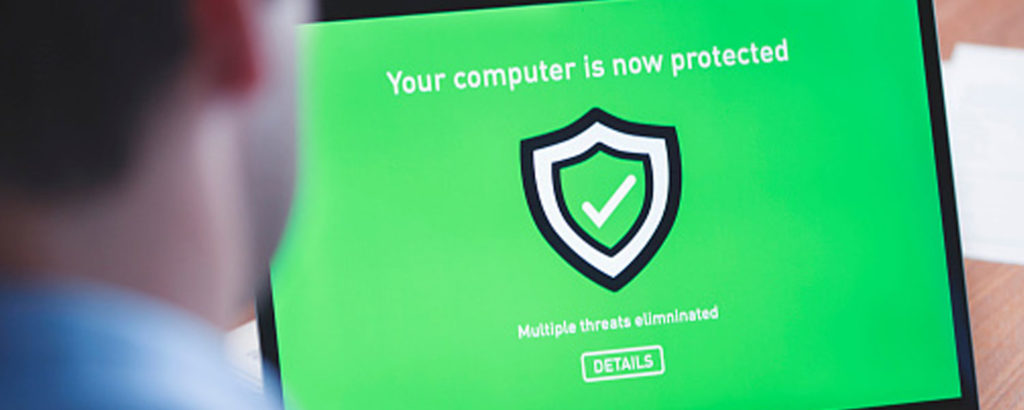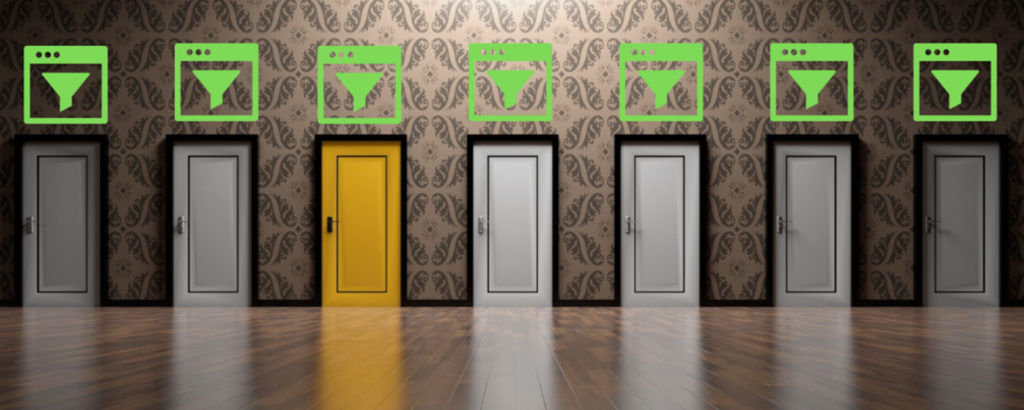The COVID-19 pandemic has kickstarted an explosion in e-commerce. In 2021, total sales reached $469 billion. It makes sense. After all, you may prefer online payments, staying indoors, and having anything you need one phone call away. It’s fast, convenient, and safer for your health. That said, is the online payment method you choose completely safe?
Today, many people prefer to use PayPal or credit cards to purchase items online. Many sites are also offering Apple Pay and Bitcoin as online payment methods. As with all other things on the internet, you may still encounter some risks that put a damper on your online purchases.
Let’s take a look at these risks, then we’ll discuss the safest payment methods and how they help you avoid those dangers.
Online Payment Risks
Online shopping is certainly convenient, but you can’t always trust its safety. First, you don’t see the product you want to buy and that brings with it scam risks. You also don’t know who’s handling your transaction. That’s not all; online payment methods pose several risks to your privacy and online security. Let’s take a look at 5 risks you face when making online payments:
1. User Errors
This isn’t necessarily a third-party error. You might send money to the wrong account, which, in turn, could cause a problem. You may not always retrieve your money, so you may lose funds.
2. Fraud
Fraudsters and cybercriminals make fraudulent websites and phishing sites look legitimate. When you enter your payment information into fraudulent sites, you’re granting cybercriminals free rein over your bank info. They may steal money from you or impersonate you to get loans, credit cards, and mortgages.
3. Improper Data Storage
You’re used to saving your credit card pin separate from your card. That’s what you’re supposed to do, at least. That said, the business you’re sending money to may not always store your data properly. If so, any attacks or hacks into their system may compromise your information and put your privacy at risk.
4. Unreliable Third-Party e-Commerce Platforms
The business you’re sending money to may compromise your security through unsecured, non-compliant e-commerce platforms.
5. Impulse Buying
Online payment methods make you lose sight of the amounts you’re paying. That may lead to poor budgeting decisions and fund losses.
Avoiding these risks isn’t impossible. Look out for signs of scams on any website you visit, and always practice good cybersecurity hygiene. Still, you can always do more, so I’ve compiled a list of the 7 safest online payment methods. I’ve also detailed what they’re best for, so you can make the best decision on how to handle your online payments.
7 Safest Online Payment Methods
You don’t need to worry anymore when shopping for gifts. Get everything you want, delivered on time, without hassle. Discover these 7 safe and easy online payment methods, and get back to your convenient payments.
1. Paypal: The Vastly Equitable Method
PayPal is a popular way to pay for goods and services online, but it could be more secure than you think. When you pay for an item using PayPal, the company you’re paying doesn’t get your credit card information. That means you could be shopping online from 100 companies, but you’re only sharing your PayPal with them. That means you don’t need to worry about data breaches at other websites or businesses involved in your transaction.
PayPal also has strong cybersecurity measures in place, like end-to-end encrypted transactions. This makes it more difficult for cyberattackers to steal your information when using PayPal. The company takes care of everything behind the scenes.
PayPal is also great because it doesn’t reveal your identity. You can use an email address and a prepaid or virtual debit card with PayPal, which means you’ll never have trouble getting paid.
PayPal is an exciting option for online transactions. They offer free money transfers between friends, but they impose an additional fee if you want to do commercial deals through them. Their security record also isn’t perfect, and you can’t always get back into your account after being locked out. It also may take longer than 24 hours to appeal your cause, because of technical difficulties on their side.
2. Credit Card: The Most Secured Opposed to Fraud
Using a credit card is mainly beneficial because you can trust the credit card company to look into any reports about fraudulent transactions. Credit card companies also give you back your money in case of any mishaps, so you can be sure it isn’t a lucrative opportunity for businesses to get rid of their products.
Credit cards also provide a safe and reliable way to make purchases online. That’s because central banks with wide-reaching networks can vet them. You also don’t need any personal information when buying something with one of these cards. Just enter your billing address. That’s how easy it is: no more waiting days before receiving payment or worrying about fraudulently taking money directly out of your bank accounts.

All that being said, you can’t count on credit cards for anonymous transactions. That’s because banking institutions issue credit or debit cards.
What’s more, it’s not a good idea to give out your card information to a company. You can’t be sure if an insider intercepts it, so you aren’t safe from data theft. What’s more, if the company suffers from a hack to their system, you could also be a victim.
3. Debit Card: The Best Way to Control Your Spending
Debit cards are great for online purchases, because your available balance is always visible. That way, you can stay within your spending limits.
If you ever lose your card, or someone steals it, you could drain your account before anyone can use it. It also minimizes the amount a thief can take from you: they can only take what’s in the card, and not more.
Many people also give debit cards to their children or family members to supervise their spending.
Yet, debit card buying doesn’t protect you from scammers. They could simply refuse your purchase without any repercussions! Debit cards may also impose some overdraft fees for trying to spend more than you have in the account, and many find that annoying.
4. Prepaid Card: The Convenient and Anonymous Way
Prepaid cards are a great way to buy things with cash without personal information. You can find these at your local grocery store or pharmacy, and they work just like debit cards, except you don’t have the risk of creating an international payment plan. It’s a safe and easy online payment method without risking identity theft.
Yet, some vendors may not accept prepaid cards as the payment method, so be sure you read the vendor’s policies before buying anything from them.
You also can’t know if you’re getting scammed, because you’re using upfront money. You also need to visit a store in person to get a card, so that’s not very convenient. Instead, it’s quite time-consuming.
5. Digital Wallets: The Appropriate Method
While most people are more familiar with cash and card payments, you can now use non-traditional currency exchange methods. Digital wallets allow you to make purchases on your phone. You can choose between Google Pay and Apple Wallet, depending upon your device type.
Digital wallets are convenient and fast ways to make payments. For example, you can simply use your fingerprint or facial ID to authenticate your identity, and that’s all it takes to pay with your credit card. The merchant also doesn’t see the card number itself. Instead, they only receive an ID-related transaction, and that protects both parties in case of fraud.
It also minimizes the risk of identity theft. What’s more, digital wallets are more sanitary than credit or debit cards when you’re in person. Contactless payment means you don’t need to touch your card and send it back and forth between different employees.
Still, digital wallets face an adoption issue. That’s because many online shops only accept more traditional payment methods, like credit and debit cards, not digital wallets.
6. Crypto Wallet: The Complete Online Option
Cryptocurrencies offer a great way to conduct private and anonymous transactions online. For example, many marketplaces now accept cryptocurrency as payment, which means you can purchase things from services like Silk Road without revealing your identity.
Cryptocurrency has become more popular than ever before, and it’s changing how we do business. For example, the blockchain records transactions, and anyone can view these. That public ledger is very useful to establish payment history.
Cryptocurrencies also help you avoid the fees associated with credit and debit card payments. Crypto also offers never-before-seen security.

Crypto isn’t for the faint of heart, though. The overwhelming majority of people will find it difficult to understand how crypto works and what their investments are worth. That’s why it’s also difficult to stabilize a whole economy with this new technology.
Theft and fraud are always a risk for cryptocurrency. After all, your wallet’s safety relies on your password’s strength. If someone steals your crypto wallet passwords, you won’t be able to reclaim your digital currency.
7. Mobile Payment Apps: The Most Convenient Way to Pay Friends and Family
In a world where everyone carries their phone with them, it makes sense that we would also want to use those phones as payment methods. As a result, mobile payments have become increasingly popular over recent years. Several different apps allow you to make quick transfers between friends or family members. You also don’t need to set up an account on these apps. For example, Zelle, Cash App, and Venmo allow American users to pay someone who needs money quickly.
You can also find a mobile payment app perfect for you with all the features you need to make transactions straightforward and secure. Venmo and Cash App are both useful for people with large balances. Both offer physical debit cards that you can use in stores or ATMs. Cash App also supports Bitcoin!
Still, it may get overwhelming to figure out the fees around each transaction on these apps. For example, Cash App and Venmo charge a flat 1.5% fee for instant withdrawals, but no cost for regular withdrawal (1-3 days). On the other hand, the Zelle app has no withdrawal fee because they connect with customer bank accounts while signing up.
Final Thoughts
After the post-pandemic online payment surge, we’re seeing an increase in the number of services that offer online products and services. That’s why, it’s essential to familiarize yourself with the best online payment methods. While you may be after convenience, you shouldn’t forget the security concerns. We always recommend proceeding with caution when conducting any online transaction. Make sure you trust the service you’re paying and that you’re using the optimal online payment methods for your transactions.
FAQ
What are e-commerce platforms?
E-commerce platforms are platforms that allow buying and selling online. These often have three main features: a search bar, to help buyers look for products, a cart tab, to organize desired items, and a payment feature. Some businesses prefer to use third-party platforms, often as software-as-a-service (SaaS). That said, these businesses may overlook some security concerns with their selected e-commerce platform.
What is PCI compliance?
PCI stands for Payment Card Industry. Credit card companies mandate businesses to be PCI compliant. To comply, businesses need to follow a set of standards in securing and protecting your payment info needed for transactions. When a business is PCI compliant, it also reduces the risk of data breaches. That’s why we always recommend using online payment methods only with renowned businesses that follow appropriate standards to protect your credit card info.
What are the fastest online payment apps?
Online payment apps allow users to make payment through their smartphones. They also allow you to connect your debit or credit cards to the platform. The best online payment apps should support different cards, have fast transactions, and work on multiple devices. As of now, the fastest payment apps include Venmo, Zelle, PayPal, and Cash App.
How is cryptocurrency secure?
All different cryptocurrencies are built on top of the blockchain. While the cryptocurrencies themselves are financially risky, the blockchain itself is secure. The blockchain is a distributed ledger technology that records transactions. Each transaction is stored as a block with a specific timestamp, so it’s easy to track the transactions. The blockchain also encourages decentralization, which means no single entity owns a certain currency. That, in turn, may remove the personal conflicts in interest and responsibility that we see in centralized finances.
How can you tell if a website is a scam?
You can look for many telltale signs to distinguish if a website is real or fake. For example, you can look at the URL: does it match the brand name? Is it suspiciously long, or contains different weird, misplaced characters? You can also see if the site uses HTTPS or HTTP protocol. If it’s the latter, chances are the website is unsafe. Try to discover if the website’s SSL certificate is EV or OV verified. If it isn’t, then it’s likely a scam. To stay secure, never visit any websites you’re suspicious of. You should also avoid clicking on any suspicious links you’ve received in untrustworthy SMS.
Resources
Mobile-First Banking
Discover why fintech and mobile-first banking are succeeding in this interview.
Mobile Banking Security
Read about a threat to mobile banking users here.
Multi-Factor Authentication Importance
Learn about why you should use multi-factor authentication to secure your accounts here.
E-Commerce Security
Explore how to secure retail and e-commerce apps here.
Convenient Technological Advancements
Read more about technology advancements that have brought benefits and inconveniences to our daily lives here.



